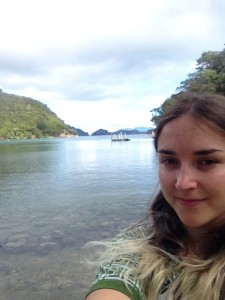 Every summer, the Department of Statistics offers scholarships to a number of students so they can work with staff on real-world projects. Rickaan, right, is working on pōhutukawa regeneration at Tiritiri Mātangi with Professor Chris Triggs. Rickaan explains:
Every summer, the Department of Statistics offers scholarships to a number of students so they can work with staff on real-world projects. Rickaan, right, is working on pōhutukawa regeneration at Tiritiri Mātangi with Professor Chris Triggs. Rickaan explains:
“Tiritiri Mātangi is an offshore island in the Hauraki Gulf which, since 1984, has been undergoing ecological restoration, led by Supporters of Tiritiri Mātangi. Due to the capacity for pōhutukawa trees to support the early growth of native ecosystems, they were planted extensively across the island at the outset of the project.
“However, the pōhutukawa survival rate was much better than expected, resulting in dense pōhutukawa-dominated forests with almost no regeneration of other plant species. So pōhutukawa stands were thinned to encourage the natural diversification of the plant and animal communities beneath.
“To gauge the success of this endeavour, monitoring of plant regeneration and changes in bird and insect populations has been underway since 2010. A significant amount of data has now been collected, which I will analyse during my research to explore the regeneration of plant, animal and insect communities in these transformed pōhutukawa forests.
“The science surrounding ecological restoration is a hot topic worldwide in the face of exceptional rates of deforestation and extinction. The Tiritiri Mātangi project has captured the interest of the international conservation movement due to its innovative scientific and public-inclusive practices. This project will thus inform both local and international science surrounding restoration ecology, as well as support this valuable eco-sanctuary.
“I graduated in early 2015 with a Bachelor of Science, specialising in Quantitative Ecology and Modelling. I have just completed a Postgraduate Diploma in Science in Biosecurity and Conservation, and will be undertaking Masters study this year exploring Quantitative Ecology.
“I was initially drawn to statistics as it is very useful, and ubiquitous in life sciences. However, during my studies I’ve gained a much greater interest in its inner workings, and have found applying my knowledge exceptionally rewarding.
“In my spare time this summer, I’m hoping to get involved with some conservation projects in the community and read some novels.”
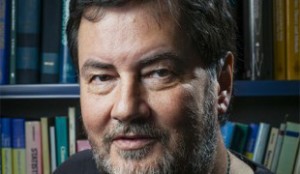 How did the statistical programming language R grow from a simple help-out for undergrad students to a global sensation? Associate Professor Ross Ihaka (right) of the University of Auckland tells the story in the latest issue of alumni magazine Ingenio.
How did the statistical programming language R grow from a simple help-out for undergrad students to a global sensation? Associate Professor Ross Ihaka (right) of the University of Auckland tells the story in the latest issue of alumni magazine Ingenio.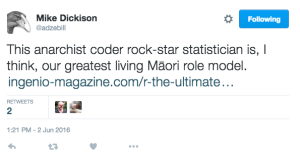
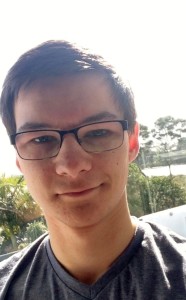 Auckland commuters know the frustration well: You’re waiting for a bus, and the electronic board shows it’s three minutes away. Ten minutes later, you’re still standing there, wondering what’s going on. Or the board may say a bus is 10 minutes away – but it suddenly turns up when you’re not paying attention.
Auckland commuters know the frustration well: You’re waiting for a bus, and the electronic board shows it’s three minutes away. Ten minutes later, you’re still standing there, wondering what’s going on. Or the board may say a bus is 10 minutes away – but it suddenly turns up when you’re not paying attention. Every summer, the Department of Statistics offers scholarships to a number of students so they can work with staff on real-world projects. Rickaan, right, is working on pōhutukawa regeneration at Tiritiri Mātangi with Professor Chris Triggs. Rickaan explains:
Every summer, the Department of Statistics offers scholarships to a number of students so they can work with staff on real-world projects. Rickaan, right, is working on pōhutukawa regeneration at Tiritiri Mātangi with Professor Chris Triggs. Rickaan explains: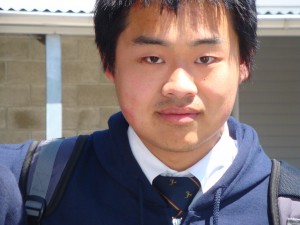 Every summer, the Department of Statistics offers scholarships to a number of students so they can work with staff on real-world projects. Xiangjie, right, is working on vector generalized linear and additive models (VGAM) for R with Dr Thomas Lee. Xiangjie explains:
Every summer, the Department of Statistics offers scholarships to a number of students so they can work with staff on real-world projects. Xiangjie, right, is working on vector generalized linear and additive models (VGAM) for R with Dr Thomas Lee. Xiangjie explains: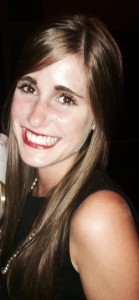 Every summer, the Department of Statistics offers scholarships to a number of students so they can work with staff on real-world projects. Eva, right, is working on a sociolinguistic study with Dr Steffen Klaere. Eva, right, explains:
Every summer, the Department of Statistics offers scholarships to a number of students so they can work with staff on real-world projects. Eva, right, is working on a sociolinguistic study with Dr Steffen Klaere. Eva, right, explains: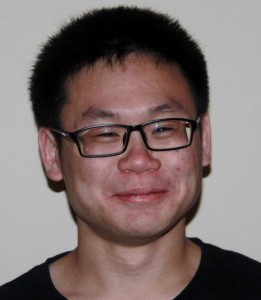 Every summer, the Department of Statistics offers scholarships to a number of students so they can work with staff on real-world projects. David, right, is working on the New Zealand General Social Survey 2014 with Professor Thomas Lumley and Associate Professor Brian McArdle of Statistics, and Senior Research Fellow Roy Lay-Yee and Professor Peter Davis from COMPASS, the Centre of Methods and Policy Application in the Social Sciences. David explains:
Every summer, the Department of Statistics offers scholarships to a number of students so they can work with staff on real-world projects. David, right, is working on the New Zealand General Social Survey 2014 with Professor Thomas Lumley and Associate Professor Brian McArdle of Statistics, and Senior Research Fellow Roy Lay-Yee and Professor Peter Davis from COMPASS, the Centre of Methods and Policy Application in the Social Sciences. David explains: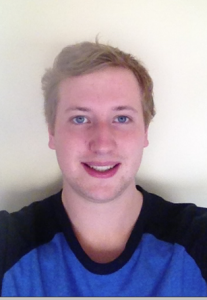 Every summer, the Department of Statistics offers scholarships to a number of students so they can work with staff on real-world projects. Oliver, right, is working on visualising conservation data with Associate Professor Rachel Fewster. Oliver explains:
Every summer, the Department of Statistics offers scholarships to a number of students so they can work with staff on real-world projects. Oliver, right, is working on visualising conservation data with Associate Professor Rachel Fewster. Oliver explains: 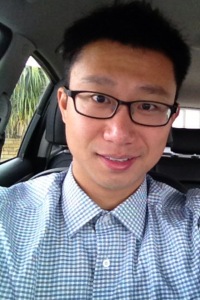 orts with Associate Professor Rachel Fewster. Hubert explains:
orts with Associate Professor Rachel Fewster. Hubert explains: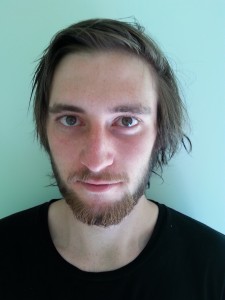
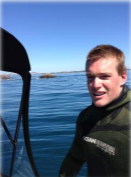 Every summer, the Department of Statistics offers scholarships to a number of students so they can work with staff on real-world projects. Christopher, right, is working with Associate Professor David Scott on All Blacks-related data. Christopher explains:
Every summer, the Department of Statistics offers scholarships to a number of students so they can work with staff on real-world projects. Christopher, right, is working with Associate Professor David Scott on All Blacks-related data. Christopher explains:
Recent comments on Atakohu Middleton’s posts